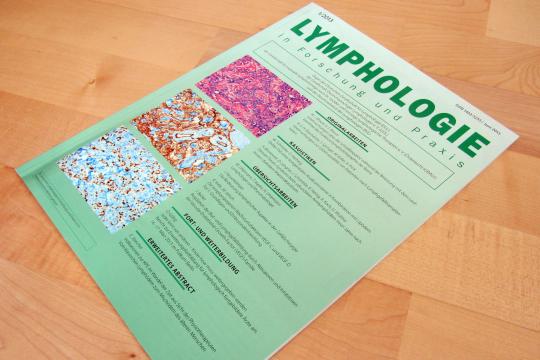Self Archiving and Open Access

I recently wrote a review article for the journal Lymphologie in Forschung ind Praxis. Its title was "Die lymphangiogenen Wachstumsfaktoren VEGF-C und VEGF-D" and it was the first paper I wrote in my mother tongue, German. This journal's impact factor has been consistently below 1, which is not uncommon for non-English journals. However, in the big European countries like Germany, France and Italy, there are still many doctors who are not comfortable reading English. I though I'd help them out catching up on the latest in lymphatic research. Opening up access to science and visibility of science is all good, so I thought.
Because my boss argued that it was a waste of time (I hope to prove him wrong - help me out here DLG!), I minimized the effort by engaging another knowledgeable German researcher at the University of Helsinki. Luckily I had already a draft when I was asked to write the review, even though I started to write it about two years ago and it was targeted for my website.
When the article was published I received two physical reprints. When I tried linking to the online version of the article, I had to realize that it was behind a paywall. Because most publishers nowadays support self archiving, I asked the publisher about their policy. I presume that the publisher did not have any policy in place concerning self archiving, because they said they would agree to it, but I would have to get the green light from the board of directors of the DLG.
I really hope to get this permission because this is the only way I can fulfill reprint request without hassle (yes I could copy the pages and send them by post (but aren't we living in the 21st century?).
If I won't get the permission, one legal and easy way to distribute this article would be to put a pre-print version (i.e. the manuscript that I wrote) online. Luckily the copyrights of the publisher cover only the published version and not the pre-print versions. Others have done it this way (and they attached a list of the changes, that were made to make the pre-print version identical to the published version). This is a suboptimal solution, but maximizing accessibility and visibility.
My University has a loose requirement to publish only in Open Access journals. However, exceptions to this policy of the University of Helsinki concerning Open Access are made on a regular basis, but they will get more and more difficult as the EU tightens their funding policy including the requirements for Open Access to research results. According to the EU's interpretation, a journal could be considered Open Access if it allows for self archiving of the published article, self archiving being the second, "green" route to Open Access. The Academy of Finland (my main funding source) has a similar interpretation: "We further recommend that Academy-funded researchers publish their articles in open-access scientific journals, if there are online journals in the field in question that are at least of the same high quality as traditional subscription journals. The articles can also be saved in open-access electronic archives." For employees of Helsinki University, self archiving is mandatory for me to self archive since 2010.
That makes sense to me: As a scientist I work with tax payers' money; therefore all tax payers should have access to the results of my work. Even though I worked for this review only in my spare time, technically the requirements still apply as I used a computer, that was paid with tax payers' money...
Stay tuned and if you need the article now (and don't want to wait for the DLG to decide), please e-mail me!



